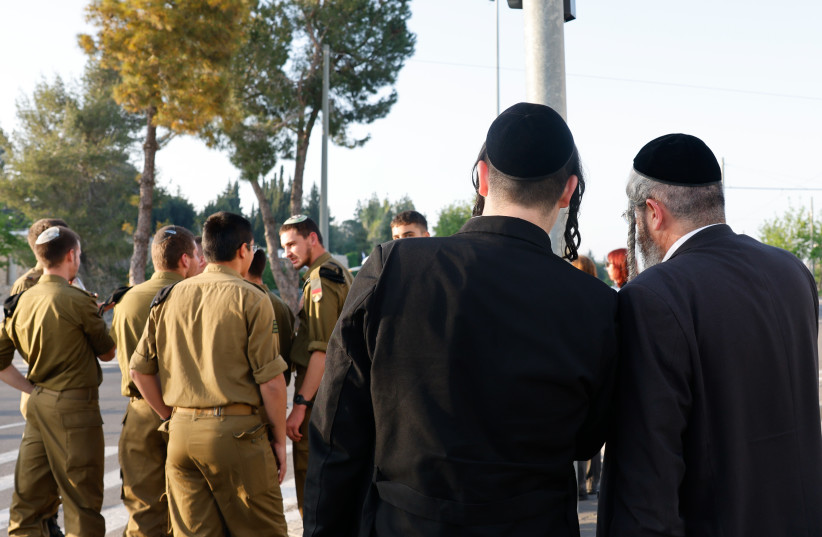Did the most senior haredi rabbi just signal support for a haredi draft? Here’s what you missed
The anticipation in the packed halls of the Mir Yeshiva was palpable. Students filled every available space, from the study hall to the staircases, spilling out into the courtyards. Rabbi Dov Lando, a towering figure in the Haredi world, took his place at the podium for his annual Ten Days of Repentance address. The weight of tradition hung heavily in the air. As the leader of the prestigious Slabodka Yeshiva, Rabbi Lando’s words hold enormous influence, and this evening would be no different. He began, as expected, with a firm and familiar declaration: “No yeshiva student, no avrech (married Torah scholar), will go to the army, under no circumstances.”
But for those closely listening, something about the address felt different. While the rabbi’s message seemed unchanged, the subtleties were impossible to ignore. The speech was not just about keeping yeshiva students out of the army; it was about the shifting ground beneath their feet. Rabbi Lando’s silence on those outside the yeshiva—those working illegally or lingering on the margins—was telling. Without making it explicit, the message was clear: if you’re not in yeshiva, maybe it’s time you serve.
Sources within the Haredi community have heard similar sentiments from other senior rabbis. While still cautious, these leaders are quietly acknowledging a reality that many have long resisted—those not fully engaged in Torah study might have a different role to play in Israeli society. This is not a grand proclamation, but a subtle and significant shift in thinking.
For decades, Haredi leadership has staunchly opposed army service for their young men, insisting that Torah study is their highest duty. Yet in his speech, Rabbi Lando’s decision not to address those outside the yeshiva framework hints at an evolving stance. This quiet omission could signal the beginning of a historic shift, a recognition that those who aren’t immersed in full-time Torah study may have a responsibility to serve in the IDF or contribute to the state in some other way.
“We pray and hope that the Almighty will not place obstacles in our path… but no one is going [to the army],” Rabbi Lando said. His words were directed at the dedicated scholars in the yeshiva. Yet, in his silence about those on the fringes, the rabbi left a door open for new possibilities. The idea that not every Haredi man is destined to stay in yeshiva indefinitely, and that some may be called to serve, marks a subtle but profound change.

Rethinking long-held positions
This isn’t a revolution, but it is the beginning of an evolution. Senior Haredi figures are starting to rethink long-held positions, allowing change to happen quietly and organically. As Israeli society looks on, it’s important to understand that these shifts won’t come with loud announcements or immediate results. But they are happening.
Rather than push back or force these changes, there’s wisdom in letting them unfold at their own pace. The Haredi community is adjusting to new realities, and their relationship with the state is entering uncharted territory. What we heard in Rabbi Lando’s speech may be the first sign of that new direction.





Comments are closed.